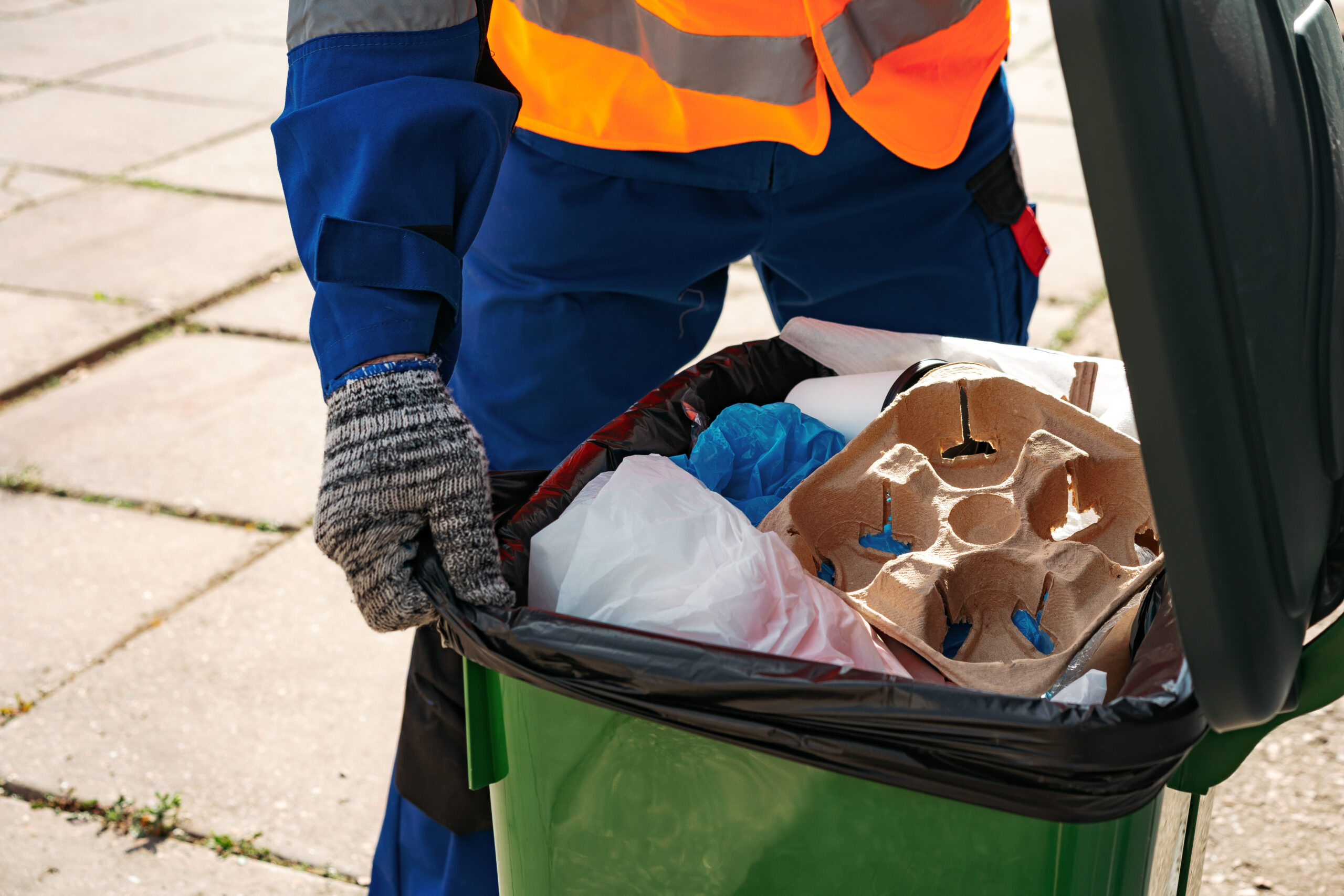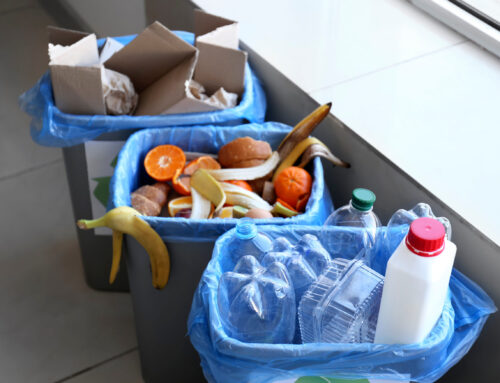
Effective waste management and sanitation services are vital components of public health and environmental sustainability. As the world continues to urbanize and populations grow, the demand for efficient waste management systems and sanitation services becomes increasingly important. This article serves as a comprehensive guide to understanding the fundamentals of waste management and sanitation services, their significance, and best practices for implementing effective systems.
The Importance of Waste Management and Sanitation
Waste management and sanitation are crucial for maintaining a clean, healthy, and sustainable environment. Poorly managed waste can lead to a range of environmental and health issues, including pollution, the spread of diseases, and the contamination of water, soil, and air. Effective waste management and sanitation services help to mitigate these risks by ensuring that waste is collected, treated, and disposed of in a manner that minimizes its impact on the environment and public health.
Public Health and Safety
One of the primary reasons for effective waste management and sanitation is the protection of public health. Waste, particularly organic waste, can attract pests such as rodents and insects, which are known carriers of diseases. Additionally, improper disposal of hazardous waste, such as chemicals and medical waste, can lead to contamination of water supplies and the environment, posing serious health risks to communities.
Environmental Protection
Effective waste management helps to reduce the impact of waste on the environment. Properly managed waste reduces the likelihood of pollution, prevents the degradation of natural habitats, and conserves resources by promoting recycling and reuse. By ensuring that waste is disposed of in environmentally responsible ways, communities can protect their natural resources and reduce their carbon footprint.
Economic Benefits
Implementing effective waste management systems can also lead to significant economic benefits. Recycling and composting programs can reduce the amount of waste sent to landfills, lowering disposal costs. Furthermore, the recycling industry creates jobs and generates revenue from the sale of recyclable materials. Effective waste management can also enhance the quality of life in communities, making them more attractive to businesses and residents.
Key Components of Waste Management and Sanitation Services
Effective waste management and sanitation services consist of several key components that work together to ensure the proper handling and disposal of waste.
Waste Collection
Waste collection is the first step in the waste management process. This involves the regular collection of waste from households, businesses, and public spaces. Depending on the community, waste collection may be handled by municipal services, private companies, or a combination of both.
There are different methods of waste collection, including curbside pickup, drop-off centers, and communal collection points. The frequency of waste collection depends on the type of waste and the needs of the community. For example, organic waste may need to be collected more frequently than recyclable materials to prevent odors and pest infestations.
Waste Sorting
Once waste is collected, it is often sorted into different categories, such as recyclables, organic waste, and non-recyclable waste. Sorting can occur at the source (e.g., households separating recyclables from other waste) or at a centralized facility, known as a Materials Recovery Facility (MRF).
Effective waste sorting is crucial for maximizing the amount of waste that can be recycled or composted. It also helps to reduce contamination in the recycling stream, which can improve the quality and value of recyclable materials.
Waste Treatment
Waste treatment involves the processing of waste to reduce its volume, make it safer, or recover valuable resources. Common methods of waste treatment include:
- Recycling: The process of converting waste materials into new products. Recycling reduces the need for raw materials, conserves energy, and reduces greenhouse gas emissions.
- Composting: The biological decomposition of organic waste, such as food scraps and yard waste, into nutrient-rich compost that can be used to improve soil health.
- Incineration: The combustion of waste at high temperatures to reduce its volume and generate energy. While incineration can reduce the amount of waste sent to landfills, it can also produce harmful emissions if not properly managed.
- Anaerobic Digestion: A process that uses microorganisms to break down organic waste in the absence of oxygen, producing biogas (a renewable energy source) and digestate (a nutrient-rich byproduct).
Waste Disposal
The final step in the waste management process is the disposal of waste that cannot be recycled, composted, or otherwise treated. The most common method of waste disposal is landfilling, where waste is buried in a designated landfill site.
Effective landfill management is essential to minimize the environmental impact of waste disposal. Modern landfills are designed with liners and systems to collect and treat leachate (liquid that drains from the landfill) and capture methane gas, a potent greenhouse gas produced by the decomposition of organic waste.
Sanitation Services
Sanitation services are an integral part of waste management and are essential for maintaining public health. These services include the provision of clean drinking water, proper sewage disposal, and the management of wastewater.
Proper sanitation services help to prevent the spread of waterborne diseases, such as cholera and dysentery, by ensuring that communities have access to clean water and that wastewater is safely treated and disposed of. Sanitation services also play a key role in protecting the environment by preventing the contamination of water bodies and reducing the impact of human activities on natural ecosystems.
Best Practices for Effective Waste Management and Sanitation
To ensure the success of waste management and sanitation services, communities should adopt best practices that promote efficiency, sustainability, and public engagement.
Promote Waste Reduction and Reuse
The most effective way to manage waste is to reduce the amount generated in the first place. Communities can encourage waste reduction through public education campaigns, incentives for businesses to adopt sustainable practices, and policies that promote the use of reusable products.
Implement Comprehensive Recycling Programs
Recycling programs should be easy to access and understand for all community members. This includes providing clear information on what materials can be recycled, offering convenient collection options, and ensuring that recycling facilities are available and well-maintained.
Encourage Composting
Composting is an effective way to manage organic waste and reduce the amount of waste sent to landfills. Communities can promote composting by providing compost bins, offering educational resources, and supporting community composting initiatives.
Invest in Waste Management Infrastructure
Effective waste management requires adequate infrastructure, including collection vehicles, sorting facilities, treatment plants, and landfills. Communities should invest in modern, efficient infrastructure that can handle the volume and types of waste generated.
Engage the Community
Public participation is key to the success of waste management and sanitation services. Communities should involve residents in decision-making processes, provide education on waste management practices, and encourage active participation in recycling and composting programs.
Monitor and Evaluate Programs
Regular monitoring and evaluation of waste management and sanitation programs are essential for identifying areas for improvement and ensuring that goals are being met. Communities should collect data on waste generation, recycling rates, and program participation to inform future planning.
Sanitation Made Easy: AAA Sanitation & Garbage Removal
Effective waste management and sanitation services are essential for protecting public health, preserving the environment, and promoting sustainable development. By adopting best practices and investing in the necessary infrastructure, communities can ensure that waste is managed efficiently and responsibly. As global challenges such as population growth, urbanization, and climate change continue to evolve, the importance of effective waste management and sanitation services will only increase. Contact AAA Sanitation & Garbage Removal today!
AAA Sanitation & Garbage Removal
79 Business Dr Ste A
Hull, GA 30646
(706) 543-7788






Leave A Comment